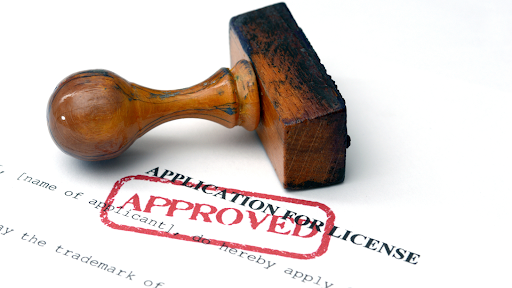Do You Need Insurance and Bonding for Your Cleaning Business?
Commercial Cleaning



When you hear about an insured and bonded cleaning service, you always hear about cleaning business licenses as well. Having all three — licensed, insured, and bonded — gives a sense of security to your customers and protects your business. Discover the meaning of each below.
It’s important to make sure you have the proper licenses before you start your first cleaning as this tells customers you are registered with your local government and operating legally.
Many customers will search to see if your cleaning business has the required licenses before choosing your service. If a business owner doesn’t have the right licenses, they could be losing out on customers and business opportunities.
Cleaning services caught without the required licenses may be forced to close and obtain them. They may also be subjected to fines and fees, possible lawsuits, and even the refusal of business licenses by the city or state.
We all have insurance for our vehicles, our homes, and ourselves to help protect us in case of an accident or another unfortunate event. Similarly, cleaning insurance protects your business in case of incidents that result in personal injury or property damage. Running a cleaning business without insurance may result in getting sued by a client or employee.
Cleaning business insurance is between two parties: the business and the insurance company. This reduces the amount of risk that a cleaning service has to take. If an accident happens, the insurance company will give the business payment.
Although we can’t stop bad things from happening, having insurance protects your cleaning business from unforeseen incidents.
A bond is different from insurance because it involves three parties: the business, the surety or bond agency, and your customer. When an incident happens, your customer files a bond claim, similar to an insurance claim, collecting payment from the bond agency. Your business then has to pay back the bond agency.
Bonded cleaning services are desirable because they come with an added layer of protection. Having to go through a bond agency reduces the likelihood of a dispute between your cleaning service and the customer.
Depending on your business needs and the state requirements, you may need to obtain multiple licenses to operate your cleaning service legally.
For most states, you are required to have a “Doing Business As” (DBA) or LLC business license to get your business started and running. If you are selling cleaning products, you may also need to get a vendor license.
A DBA license is required if you want to use another name for your business that is different from your legal name or the legal name for your business. Obtaining this license allows your cleaning service to operate under a trade name that helps people identify you. To start a business account, the bank will require you to provide a DBA license.
LLC or “Limited Liability Corporation” business licenses are different from a DBA license. When you file for a business license as a C corporation, S corporation, or LLC, your business is now its own legal entity, of which you are a part.
Personal assets are detached from the assets of your cleaning service. An LLC business license protects you as an owner in case your cleaning service goes bankrupt so that you only lose what you put into the business.
Your cleaning service is required to have a vendor license if you are offering items for sale. Having a vendor license allows you to collect sales tax and make wholesale purchases at a price lower than retail. A vendor license can be used as a basic business license in some states.

Insurance helps protect your business from incidents that could result in a lawsuit from your clients or employees. While some insurance policies are optional depending on your location, workers’ compensation and commercial auto insurance may be required by state law.
While general liability insurance is not usually required to operate, it is crucial for your cleaning service. General liability insurance covers bodily injury, property damage, copyright infringement, reputational harm, and advertising injury.
For example, if a client trips over your cleaning equipment and sues your company, the general liability insurance will cover the medical bills and any legal or settlement fees incurred. Similarly, if an employee spills a cleaning solution and damages a customer’s flooring, the property damage cost is also covered.
For the majority of states, it is necessary for a business to get workers’ compensation insurance the moment you hire your first employee. This protects your cleaning service if your employee sues as a result of work injuries. The insurance covers the cost of the employee’s medical expenses and lost wages.
Generally, if your cleaning service has a company vehicle you are required to get commercial auto insurance. Similar to car insurance, it protects the vehicle and the owners in the wake of an accident. This includes the costs related to property damage and bodily injury.
If your employee is using their own vehicle for work-related purposes, you would need to get hired and non-owned insurance. Personal car insurance doesn’t usually cover work-related driving accidents.

While it is not required by state law to get surety bonds for cleaning services, most customers actively look for bonded cleaning services to protect themselves. This is especially true for new customers who are using a cleaning service for the first time. By purchasing a bond, you give customers a reason to trust you even more.
The bond you are most likely to purchase is the janitorial or surety bond, which protects your clients from dishonest actions taken by your cleaners (for example, theft). With janitorial bonds, your clients are able to go through the bond and get the appropriate compensation.
If you need help finding a trusted surety bond agency in your area, the U.S. Small Business Administration can help.
Having your cleaning company insured and bonded shows clients that they will be protected from accidents, theft, and other incidents while your team is cleaning their property. Bonding and insurance will also protect your business from lawsuits that customers might file due to unsatisfactory work from your cleaning service.
Additionally, bodily injuries and property damage can happen during cleaning business operations, so being insured and bonded can help you cover costs incurred by such accidents.
It is highly recommended to obtain cleaning business insurance as soon as you start your cleaning business. Without insurance, you will be liable for any mishaps that occur on a job site. Having insurance coverage can save you thousands of dollars in damages and other legal fees.
According to Fit Small Business, cleaning service insurance can cost anywhere from $350 to $7,000. The price will vary depending on the type of insurance you choose.
The following are the insurance quotes you may pay annually to providers:
Being a licensed, insured, and bonded cleaning service gives you a competitive advantage over businesses that are not. Consumers are more educated and conscious about the services they choose, so consider getting all three if you want to stand out and attract customers.
Once you have the proper protection for your cleaning business, you can shift your attention to scaling your services. To do so, you’ll need a system to help you eliminate manual tasks. Automate scheduling, streamline communication, and keep track of your work all in one place with the Taskbird app.